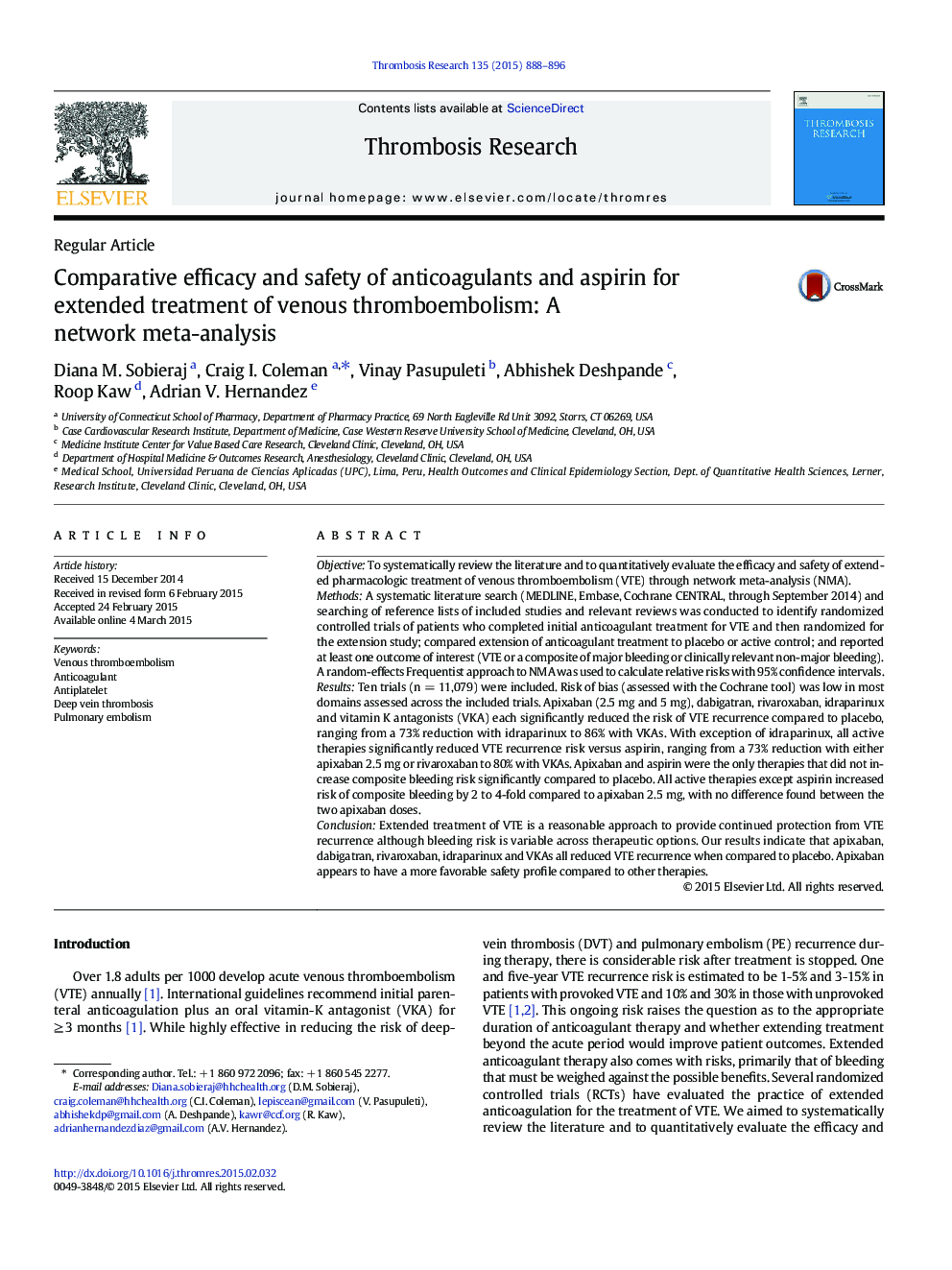| Article ID | Journal | Published Year | Pages | File Type |
|---|---|---|---|---|
| 6001580 | Thrombosis Research | 2015 | 9 Pages |
â¢We evaluated extended pharmacologic treatment of venous thromboembolism (VTE) through network meta-analysis.â¢Extended treatment of VTE is a reasonable approach to provide continued protection from VTE recurrence.â¢Bleeding risk is variable across therapeutic options.â¢Apixaban, dabigatran, rivaroxaban, idraparinux and VKAs reduced VTE recurrence versus placebo.â¢Apixaban appears to have a more favorable safety profile compared to other therapies.
ObjectiveTo systematically review the literature and to quantitatively evaluate the efficacy and safety of extended pharmacologic treatment of venous thromboembolism (VTE) through network meta-analysis (NMA).MethodsA systematic literature search (MEDLINE, Embase, Cochrane CENTRAL, through September 2014) and searching of reference lists of included studies and relevant reviews was conducted to identify randomized controlled trials of patients who completed initial anticoagulant treatment for VTE and then randomized for the extension study; compared extension of anticoagulant treatment to placebo or active control; and reported at least one outcome of interest (VTE or a composite of major bleeding or clinically relevant non-major bleeding). A random-effects Frequentist approach to NMA was used to calculate relative risks with 95% confidence intervals.ResultsTen trials (n = 11,079) were included. Risk of bias (assessed with the Cochrane tool) was low in most domains assessed across the included trials. Apixaban (2.5 mg and 5 mg), dabigatran, rivaroxaban, idraparinux and vitamin K antagonists (VKA) each significantly reduced the risk of VTE recurrence compared to placebo, ranging from a 73% reduction with idraparinux to 86% with VKAs. With exception of idraparinux, all active therapies significantly reduced VTE recurrence risk versus aspirin, ranging from a 73% reduction with either apixaban 2.5 mg or rivaroxaban to 80% with VKAs. Apixaban and aspirin were the only therapies that did not increase composite bleeding risk significantly compared to placebo. All active therapies except aspirin increased risk of composite bleeding by 2 to 4-fold compared to apixaban 2.5 mg, with no difference found between the two apixaban doses.ConclusionExtended treatment of VTE is a reasonable approach to provide continued protection from VTE recurrence although bleeding risk is variable across therapeutic options. Our results indicate that apixaban, dabigatran, rivaroxaban, idraparinux and VKAs all reduced VTE recurrence when compared to placebo. Apixaban appears to have a more favorable safety profile compared to other therapies.
